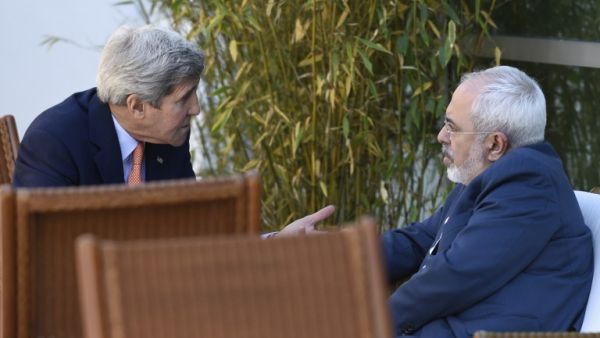Iran's opposition to intrusive international nuclear inspections emerged on Saturday as a continuing stumbling block on the path to a far-reaching nuclear deal, as the US and Iranian chief diplomats, John Kerry and Mohammad Javad Zarif, met in Geneva.
Iran and the group of Britain, China, France, Russia, the United States and Germany aim to conclude a deal by June 30 that would curb Tehran's ability to produce material for atomic weapons in its civilian nuclear sites.
In return, economic sanctions targeting Iran would be lifted.
Iran and the six world powers agreed on the outlines of the deal in April, but there are unresolved issues, including whether International Atomic Energy Agency (IAEA) inspectors will get access to Iranian scientists and military sites to investigate alleged nuclear weapons research projects.
Iranian Deputy Foreign Minister Abbas Araghchi rejected the possibility of such interviews and visits, in comments to Iranian state broadcaster IRIB in Geneva that echoed recent remarks by Iran's Supreme Leader, Ayatollah Ali Khamenei.
"There are issues to which we are still looking for solutions," he said about the purpose of the one-day encounter between Foreign Minister Zarif and Secretary of State Kerry.
Senior negotiators would resume talks on Thursday in Vienna, Araghchi said as the Geneva round ended, according to the Iranian news agency Tasnim.
The Vienna-based IAEA made clear in a new report on Friday that Tehran has not provided its inspectors with enough information or access for its probe into a dozen suspect research and development projects.
Iran denies having carried out nuclear weapons projects. It says that the IAEA's probe is based on fabricated Western intelligence, and that some of the projects had civilian purposes.
By Albert Otti








